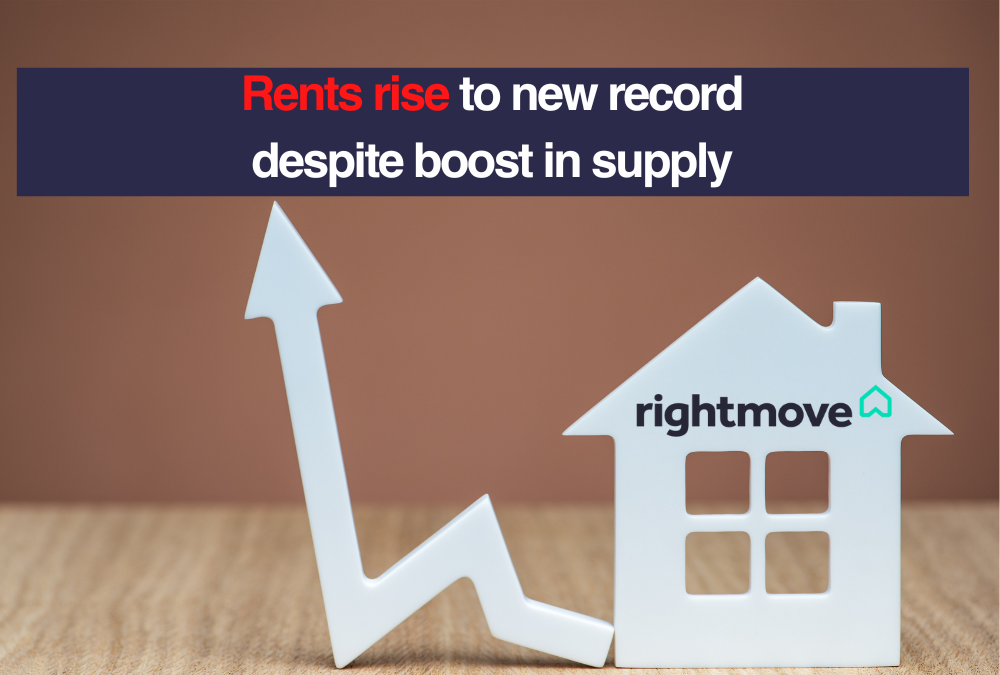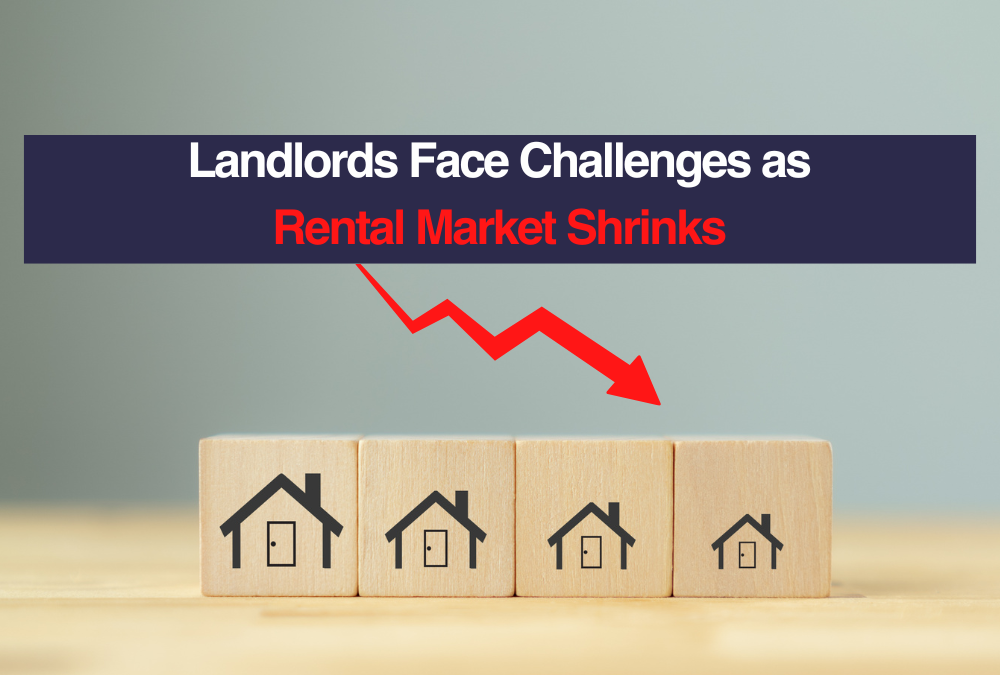The cost of renting a home in the UK has long been a hot topic. With each passing year, rent prices keep rising, and it looks like 2023 will be no exception as the rental market shows no signs of slowing down. In fact, property experts are currently agreeing on growth estimates of around 4-5% annually.
Property website Zoopla reports that new-lets have risen the most in the past year – by a whopping 11%. Over the same period earnings increased by 6.7%.
Rightmove are also pointing out that the beginning of 2023 was the 13th consecutive quarter to see an increase in new-let rents.
The rental market in the UK is influenced by several market factors that contribute to the consistent increase in rent prices. In this blog post we will check out the latest figures and examine the factors that we believe are fuelling this rise.
Supply And Demand Dynamics
There is currently a huge disparity between the supply of available rental properties and the demand from prospective tenants. This is a significant driver of rent increases.
When demand outstrips supply, landlords are able to raise rents and capitalise on the market prices. This is particularly true in high-demand areas where housing options are limited.
Rightmove reports that there is still a significant imbalance between supply and demand for rental accommodation, with the number of tenants enquiring to move far outweighing the number of properties to rent.
Additionally, Zoopla’s statistics show that the demand for rental homes is 10% higher than last year, with this being driven by a variety of factors;
- Home ownership affordability – rising property prices and stringent mortgage lending criteria mean renting is the only option for many
- Changing demographics and lifestyle preferences – younger generations prefer to rent as it’s more flexible and easier to move around
- Population growth and urbanization – the UK’s population is still growing, especially in urban areas
- Delayed household formation – a higher proportion of the population are staying in the rental market for longer as they delay marriage and starting a family
- Economic factors – affect an individuals’ ability to purchase a home and renting provides a more flexible option in uncertain economic times
- Migration and globalization – the UK attracts individuals from around the world for various reasons, including work, education, and lifestyle opportunities
- Rising student population – both domestic and international, requiring accommodation near universities and colleges
It’s important to note though that, while demand for rented accommodation has been increasing, the supply of affordable housing has not kept pace. Several factors have contributed to this;
Limited Housing Supply
The UK faces a shortage of affordable housing, which restricts the supply of rental properties. Insufficient construction of new homes, particularly in high-demand areas, has led to the significant gap between supply and demand.
Additionally, the soaring cost of land and construction materials, coupled with strict planning regulations, has hindered the development of new rental properties. Property developers often prioritize higher-profit margin ventures, such as luxury housing, over affordable rental options.
This shortage also applies to homeownership properties, which further impacts the supply constraints in the rental market.
Inflation
Inflationary pressures impact the cost of living, including rent prices. When general price levels rise, landlords will adjust rent prices to maintain profitability.
Buy-to let landlords can no longer offset mortgage interest against tax and are facing huge increases in their monthly payments due to rising interest rates. This is forcing landlords into increasing the rent.
Government Policies and Regulations
Policies and regulations related to the rental market and housing sector can influence rent prices.
Changes in taxation, landlord regulations, and rental legislation all have cost implications for landlords, who may adjust rents to offset increased expenses or to comply with new requirements.
These changes have also seen many landlords sell up, further decreasing the supply of available rental properties.
It remains to be seen what effect the new Renters Reform Bill will have on supply, with many predicting that even more landlords will throw in the towel and sell up rather than carry on with an even more constrained and less profitable business.
Regional disparities
Rent increases have varied across different regions of the UK due to different economic conditions, employment opportunities, and desirability factors. High-demand areas, such as London and other major cities, often experience more significant rent increases due to factors like robust job markets and limited housing supply.
Zoopla’s Rental Index for March 2023 shows that people pay twice as much to rent in London and that rents across the south are the most expensive compared to other regions.
Having said that, Manchester has seen the highest annual percentage increase in rents at 14.4%, with the North East being the cheapest place to rent in the UK.
Summary
A combination of factors has resulted in a supply and demand imbalance for rented accommodation and is causing rents to keep on rising.
There is a difference though between the pace at which rents are rising for new lets, and how much rents are rising for established tenants.
At Horizon Lets, we certainly see that properties new to the market fetch the highest rents, in accordance with the market trends. Rent increases for current tenants do tend to be smaller and rents below the market rate.
Most investors appreciate a good, long term, tenant who takes care of the property they live in. This is an important factor for landlord who recognise the worth of keeping hold of a good tenant.
One of our Lettings Managers, Samantha says “I am seeing a reluctance with many of our tenants to leave their current property, as they realise how much more they will need to pay for a new rental. I think this is also contributing to a lack of supply and less movement in the market”
Horizon Lets like to keep on top of the rental market and will be watching what happens to rents over the coming months. We will always be able to give the most up to date advice to landlords to help them make the most from their investments
Related Articles
- Garden Maintenance in Rented Property
- Are You a New Landlord?
- Repairs: A Guide for Landlord & Tenants
- Should You Furnish Your Rental Property?
- Japanese Knotweed








